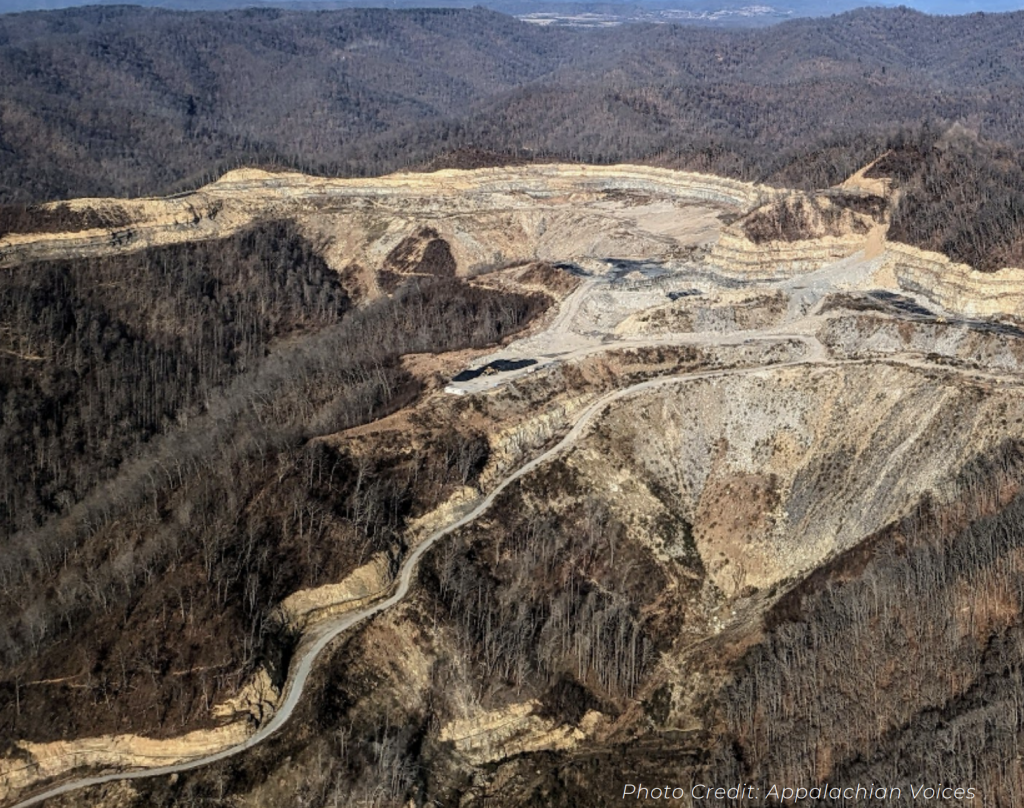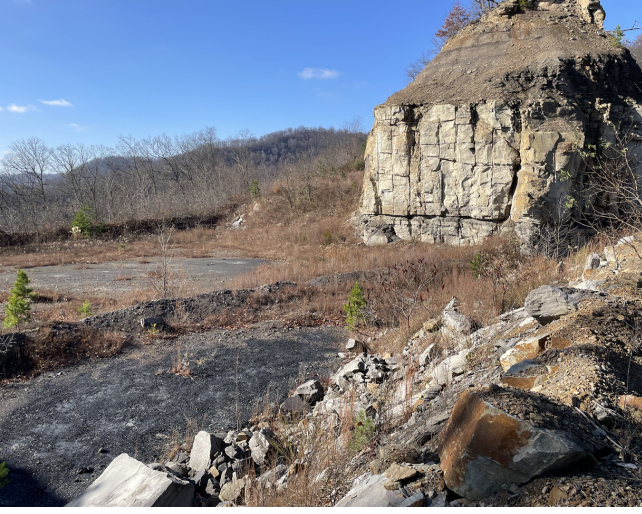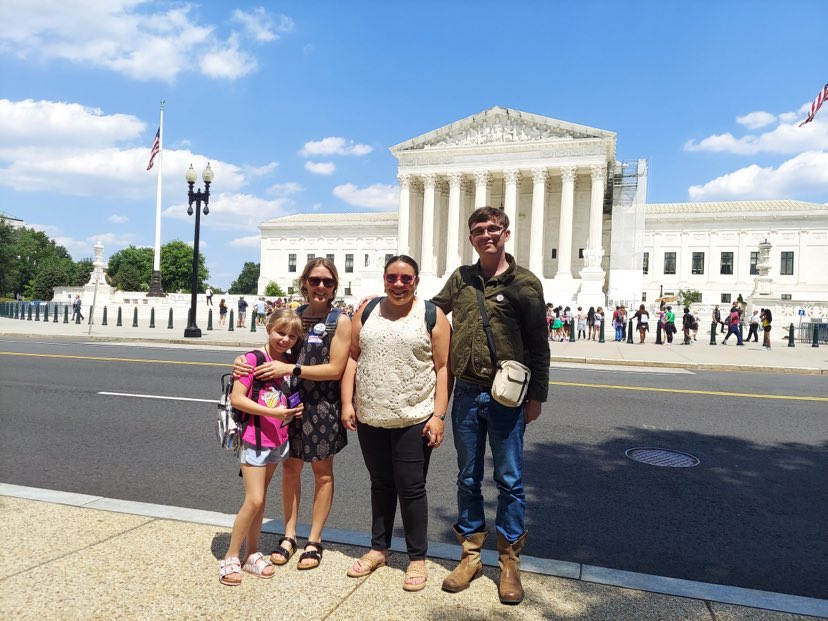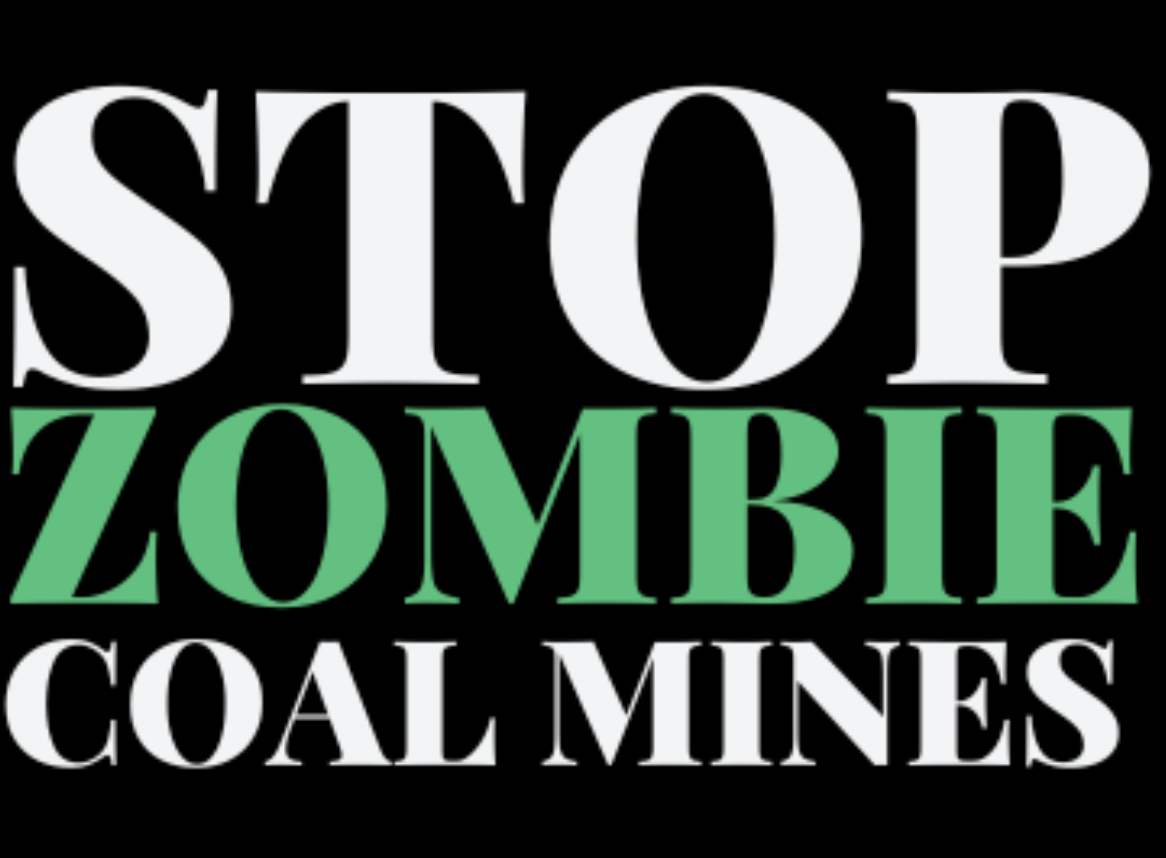
Photo taken December 2023 of a mine in Pike County that has not produced coal
since 2019.
This week, Appalachian Voices and 12 partner organizations are on Capitol Hill with The Alliance for Appalachia to tell Congress to protect our communities by making coal companies clean up their functionally abandoned coal mines, known as zombie mines.
Together, 36 community advocates representing six states will be meeting with 43 congressional offices to tell legislators and their staff why Congress needs to act! We and our neighbors value taking care of our land and protecting our communities. Bills currently in the U.S. House would help make sure coal companies follow the law and clean up their mines instead of leaving local residents to deal with the significant environmental and safety hazards that remain when coal companies fail to take responsibility and remediate their mines.
Take Action: Stop zombie mines!
Zombie mines
For decades, surface coal mining has stripped Appalachian mountaintops of their forests and streams. Images of surface coal mines reveal stark landscapes, change in the natural contour of mountains and, sometimes, bright orange creeks. With the natural environment diminished, surrounding communities are experiencing an increase in landslides, extreme flooding and water pollution.
But coal mines aren’t supposed to look like that forever. Coal companies are supposed to reclaim land as they mine to minimize the amount of disturbance on the land. When this process happens and coal mines are properly cleaned up, landowners can return the land to native forest or use the land for new projects such as farming, solar and wind facilities, ranching, trails, commercial or residential construction, and more. But when clean up is delayed, mines can sit unreclaimed for years, creating hazards for nearby communities and the environment.

Photo taken in November 2023 of a highwall on a functionally abandoned mine permit in
Pike County, Kentucky.
When mines are not cleaned up, surrounding communities face possible landslides, polluted groundwater and a loss of economic opportunities. Mines that are neither producing coal nor being reclaimed are known as “zombie mines” — functionally abandoned mines that are still having a very live effect on surrounding communities. As the coal industry has declined, more and more modern coal companies are failing to clean up their mess and, frequently, regulators have let those companies walk away.
The bills
Fortunately, we have seen a recent increase in the number of zombie mine hunters in Congress — legislators who are taking action to stop the spread of zombie mines and begin the clean up process in a timely manner. These lawmakers have introduced three bills in the House of Representatives to tackle the problem.
Ask your legislators to stop zombie mines!
Two bills introduced by Rep. Matt Cartwright of Pennsylvania — the Coal Cleanup Taxpayer Protection Act (H.R. 7940) and the Bond Improvement and Reclamation Assurance Act (H.R. 7941) — outlaw certain bonding practices that have created countless zombie mines and tighten regulations to ensure coal companies set aside enough money for reclamation.
Learn more at Zombiemines.org
The Coal Cleanup Taxpayer Protection Act gets rid of the most risky form of bonding, self-bonding, where coal companies give only their word that they can provide enough money for reclamation. It also adds protections so that state bonding programs will actually guarantee that reclamation is completed.
The Bond Improvement and Reclamation Assurance Act requires coal companies to ensure they are able to cover actual cleanup costs for each coal mine — before mining can begin.
Rep. Don Beyer of Virginia introduced the Stream Protection and Vegetation Restoration Act (H.R. 8062), which sets clear deadlines for how quickly parts of a mine must be cleaned up after the coal is removed. The bill also ensures that stream health is restored, and requires inspections after major rainfall events to reduce a mine’s impact on public rivers and streams.
Week of action
To make sure that these bills don’t become zombie bills, Appalachian Voices is joining the Alliance for Appalachia and 12 other organizations for a Week of Action in Washington, D.C., this week!

Left to right: Harper Hill of Kentuckians for the Commonwealth, Lyndsay Tarus of the Alliance for Appalachia and Taysha Lee DeVaughn and Garrett Blaize of Southern Appalachian Mountain Stewards. Photo courtesy of Lyndsay Tarus.
During this week, 36 people from organizations across Alabama, Tennessee, Kentucky, Virginia and Pennsylvania are meeting with legislators and their staff to ask for support for the bills, which have already been introduced in the House, but not yet the Senate. They will explain the scale of the issue, communicate the urgency of the problem and advocate for the end of zombie mines.
Allegheny-Blue Ridge Alliance, Appalachian Voices, Black Warrior Riverkeeper, Center for Coalfield Justice, The Clinch Coalition, Coal River Mountain Watch, Kentuckians For The Commonwealth, Kentucky Resource Council, Southern Appalachian Mountain Stewards, Southern Connected Communities Project, Statewide Organizing for Community eMpowerment and West Virginia Highlands Conservancy will all be represented.
Meetings with legislators directly is an important way to advocate for legislation that protects our communities, but you can also participate from home. We need your help in calling Congress to action. You can help to end zombie mines by:
- Contacting your lawmakers and asking them to support the legislation
- Posting on social media
- Sharing information with your friends and family.




Leave a Reply